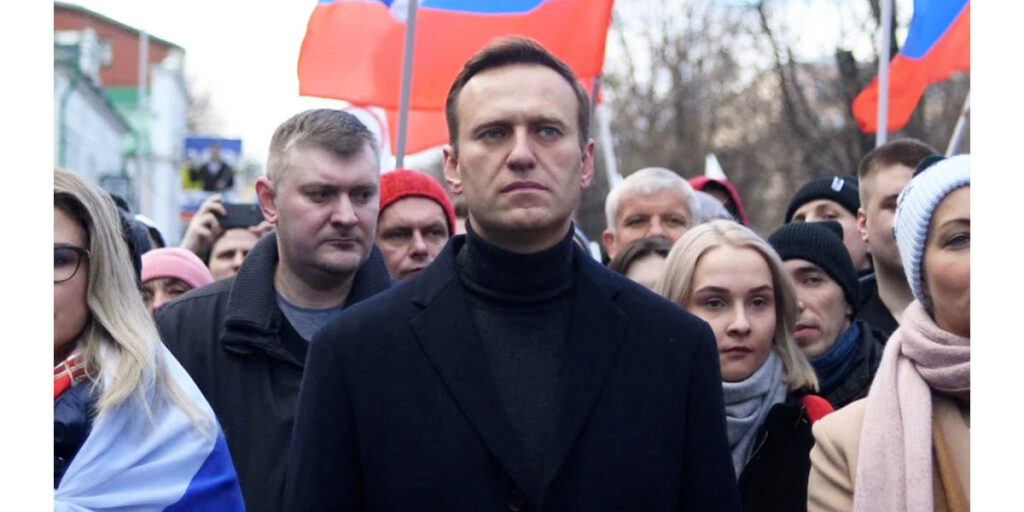The sudden and tragic demise of Alexei Navalny at the age of 47, while incarcerated in the notorious “Polar Wolf” penal colony in Siberia, marks a dark chapter in the ongoing saga of political dissent against Vladimir Putin’s Russia. Navalny, a luminary in the fight against governmental corruption and a tireless advocate for democratic principles, found himself in the crosshairs of the Kremlin due to his unwavering commitment to exposing malfeasance at the highest levels of power. His passing has ignited a firestorm of international condemnation, with many pointing to the deep-seated suspicion that Putin himself likely played a direct role in orchestrating Navalny’s untimely death as a means to silence one of his most vocal critics.
Navalny’s journey as the foremost adversary of Putin’s regime was fraught with peril. He led significant anti-government protests and sought to effectuate change through political participation, advocating for reforms to combat the corruption he saw as endemic within the Russian political elite. Navalny’s activism came at great personal cost, most notably in 2020 when he survived an assassination attempt via poisoning with a Novichok nerve agent. Navalny attributed this brazen attack to the Kremlin, an accusation that underscored the mortal dangers he faced in his quest to hold Putin accountable.
Despite the risks, Navalny demonstrated remarkable resilience. After recovering in Germany, he returned to Russia in 2021, fully aware of the likelihood of his arrest. Upon his arrival, he was detained and subsequently sentenced to 19 years in prison on charges that he and his supporters denounced as politically motivated fabrications designed to neutralize him as a political force.
The official account of Navalny’s death—that he fell ill and lost consciousness following a walk in the penal colony, with subsequent attempts at resuscitation failing—has been met with widespread disbelief and outrage. Critics and observers around the world see this narrative as implausible, viewing Navalny’s death as the culmination of Putin’s long-standing campaign to eliminate dissenting voices, with Navalny’s outspoken criticism of Putin rendering him a prime target for such a fate.
The global reaction to Navalny’s death underscores the gravity of the situation and the pervasive belief in Putin’s involvement. From U.K. Prime Minister Rishi Sunak to Ukrainian President Volodymyr Zelenskyy, leaders have mourned Navalny’s death while pointing to the chilling implications for Russian democracy. In the United States, Vice President Kamala Harris and Secretary of State Antony Blinken have expressed their condolences and highlighted the broader significance of Navalny’s death as emblematic of the brutal tactics employed by Putin’s regime to maintain its grip on power.
Navalny’s legacy is indelibly marked by his fearless pursuit of transparency and accountability, from his early work exposing corruption to the establishment of the Anti-Corruption Foundation. Despite facing relentless threats, including previous attempts on his life, Navalny remained steadfast in his conviction that Russia could embrace a future grounded in democratic values.
The circumstances of Navalny’s death, shrouded in suspicion and skepticism, serve as a stark reminder of the perils faced by those who dare to challenge authoritarian power. His life and untimely demise are emblematic of the struggle for freedom and justice in the face of tyranny. Navalny’s spirit of resistance and his ultimate sacrifice will become a beacon for all who aspire to a future where truth prevails over oppression.
But we would rather have him alive.
